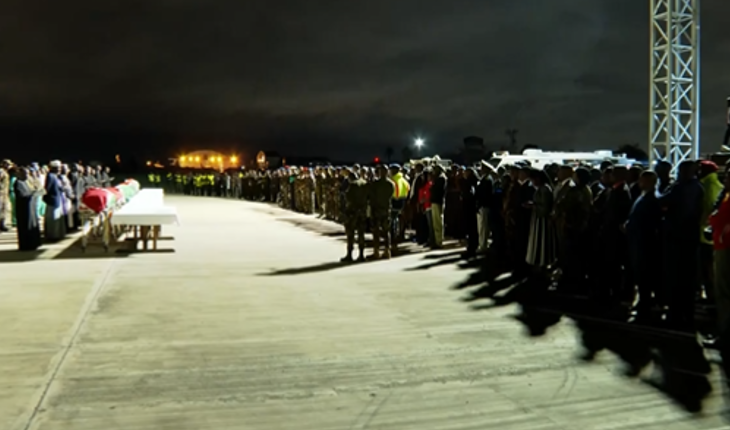Villagers robbing the dead? We’ve hit rock bottom
By Levi.Obonyo, April 26, 2024What kind of country is this? What prompts this question is the report emerging from the crash site of the plane that carried the now deceased Chief of Forces Francis Ogolla.
Reports say that personal items on the victims of the crash had disappeared by the time official rescuers landed on the site.
The victims had lost their watches, shoes and other personal items. In some reports, the only valuable thing retrieved from the body of the late General was his wedding ring. Maybe the scoundrels stripping them of their valuables did not look at his hand.
Other reports said the cell phones of the deceased soldiers were being switched on and off in the area, indicating that the locals had taken them.
It has become too common for accident victims to be stripped of their valuables. The first responders, often locals or idlers near the accident site, consider their first objective to look for the gains they can make. This gain is often in the form of valuables the deceased or injured may have possessed, such as cash, electronic gadgets, watches and jewellery.
The late general’s son, Joel Ogolla, eulogised his father, saying he always carried his Bible. He pleaded that the Bible be returned to him should it be found. One hopes that the Bible survived the crash and the local greed. It would certainly mean more to him than to the looters.
It may be assumed that the practice of looting victims of accidents is an urban occurrence, a cosmopolitan practice at odds with African values. There is often a tendency to blame Western cultural influence for all our bad manners.
However, the plane crashed in Kenya’s outback, which is probably as remote as Kenya may be. This land is inhabited by peasant farmers, among whom Africa’s cherished values may be found. Scholars continuously regard African values enshrined in Ubuntu, exhibited in hospitality, caring for and loving others.
This goes beyond life. John S. Mbiti, the Kenyan and African theologian of repute, supported by other scholars, considers how sacred the death process is. Death is the beginning of the journey to the world of ancestors. The dead recede slowly further and further into the spirit world, from where they, as the custodians of the community, keep watch.
The newly dead are not yet completely dead, so they are watching us. For this reason, their wishes are kept lest their anger be stirred and they cause harm to the living. In the case of General Ogolla, some of those wishes were that he be buried within 72 hours and that his burial would be kept simple. General Ogolla made the Luo cast aside some of their practices.
That the Luo did not feast at the funeral of the general is a new threshold. Only time will tell if the spirits will forgive the living. The Luo have raised the practice of feeding mourners to an industrial level. Indeed, no expense is spared to celebrate the dead.
Where are African values when they are most needed? Why is greed such an overriding vice in the Kenyan community, not just confined to the Kenyan urban population—the political and business class—but the dominant vice even in the far rural countryside Sindar village in Kaben, East Marakwet, 400km away from the rot of Nairobi, a village hardly visible on Google?
Kenya needs reconstruction. The challenge is to find an institution that would lead in this. Kenyan leaders should be ashamed of the kind of people they are leading. How would one be proud to lead a vice-prone society that robs the dead? What do our neighbours, the Tanzanians and the Ugandans, think of us? Unfortunately, Kenyans may have lost the capacity to be embarrassed.
An urgent task for a Kenyan leader is not just economic revival but a rediscovering of our Africanness, at least to have residual values that would define us, values to be proud of. This should be the leadership’s urgent mission.
—The writer is the Dean, School of Communication, Daystar University
